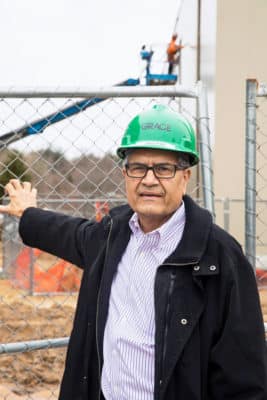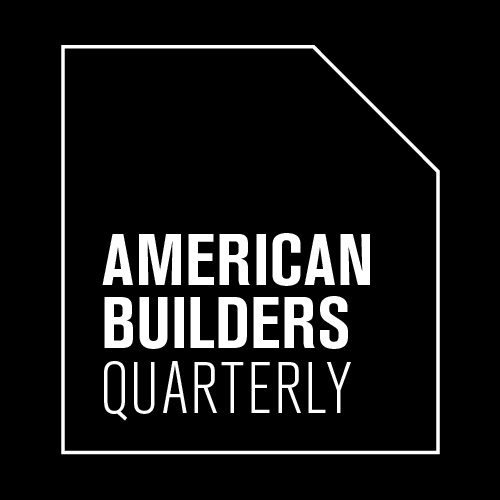
W. R. Grace & Co., an American specialty-chemicals and materials company based in Columbia, Maryland, operates in nearly 40 countries around the world. As anyone who works overseas knows, a global business presents unique challenges and opportunities to many divisions, not least of which is construction.
Nizam Usta, Grace’s director of global construction management, has more than 30 years of experience with the company and has handled projects all over the world. “We have sales in almost every country, manufacturing and operations in Europe, the Asia-Pacific region, North America, and Latin America,” Usta says. “I build offices to support these organizations. Whether it’s in Brazil or Beijing, Dubai or Manila, I have to make it happen, either remotely or on site.”
Born in India, Usta studied chemical engineering in his home country and earned a master’s degree in industrial engineering at Northeastern University and an MBA from Boston University. He did research on concrete for Grace while working on his masters. After graduation, he worked as an industrial engineer for several companies until 1987, when Grace contacted him to oversee the construction of a lab in Cambridge, Massachusetts.
“I was always interested in working for a large corporation,” Usta says. “With my chemical and industrial engineering background, this opportunity was very unique. It was to optimize the design from the chemical viewpoint, and I could bring my particular strength to the project.”
What was intended to be a small project grew into a $20 million rebuild of nearly 90,000 square feet of space that was formerly a balloon factory. Usta was made a full-time employee during the project and has been with Grace ever since.

His current overseas projects include a new ground-up build in Abu Dhabi and a just-finished lab in Oman, and he’s also expanding several North American sites. Usta has called his career a journey of personal acceptance. “I raised my hand and accepted them,” he says, referring to the new roles that have come up in his career. “Most of my work is project related, and every project is unique—not only the challenges and issues within the technology but also the people related to those projects. You have to accept that people will be different, their expectations will be different, and instead of fighting it, accept it and work within the constraints of both the people and the technology.”
These differences are heightened when working abroad, according to Usta. “Working across cultures requires flexibility,” he says. “Communication can be very difficult. What is said is not always what is heard. In certain parts of world, when someone with authority says something, people nod their head. In the West, we assume that means they understand and accept what is being said. In their culture, it means you are the boss and we will do what you’ve asked.” There may be a big gap between hearing and understanding, Usta explains, adding, “That part of communication has to be very slow, with feedback to make sure everyone understands the problem and the expectations around the solution.”
Diverse workforces can be challenging, he says, especially in places such as the Middle East. “Their training and their needs are unique to their culture, and their values are different,” Usta says. “To bring a diverse ethnic workforce together becomes a hot spot. If not managed properly, it can explode and bring disaster to the project.”
There are legal and practical challenges working abroad as well, so Usta and his team rely heavily on local support. “Regulations and construction practices are very different, and there is often a lot of bureaucracy where one department doesn’t communicate with the other departments,” he says. “It’s not synchronized. In layman’s terms, I call it red tape. You have to get involved with locals who know the local agencies.” He uses local consultants and contractors who understand how to cut through that red tape. “You usually need people on the ground to bring some kind of decision,” he says.
These relationships are fostered over time and take on different meanings overseas. “You may have a supplier-owner relationship, but these people go beyond work,” Usta says. “They invite you to their homes, into their private life to share meals and drinks.” Building those relationships, whether they present themselves late at night or Sunday afternoon, is critical. “Here, we are driven by contracts and litigation,” Usta says. “We can take the shelter of the law to get things done. In other countries, the relationship matters more than the law.”
Usta loves that part of his work. “Being raised in India, I was exposed to the culture, so it came easier to me,” he says. “Also, I enjoy people. That helps me to build long-term relationships in other parts of world. I have relationships that go back 20 years, at least. A personal touch is as important to the success of the project as the project itself.”

